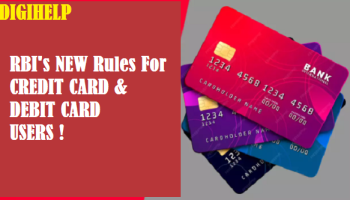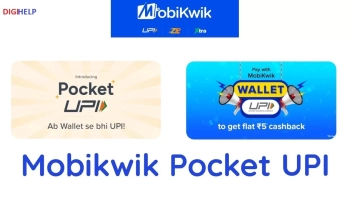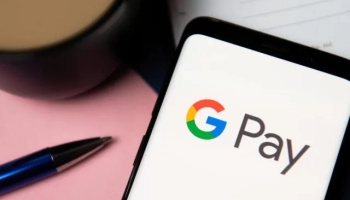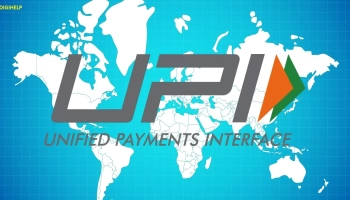Tokenize Transaction in Credit Card – Effective 1st July’22, Bank card details, already saved on Merchant Website/App like on Amazon, Flipkart, Payzapp, Ola app, Uber, Swiggy, Zomato etc will get deleted by the merchants as per the RBI mandate for enhanced card security. It means all the saved Credit Cards or Debit Card details will not be utilized for fast payment through these apps unless registered for Card Tokenization.
As per RBI mandate, from 1st July 2022, full card number, CVV and Expiry date and any other sensitive information related to cards cannot be stored by the merchants for processing online transactions. To pay each time, full card details are entered or Card-on-File Tokenization (CoFT) should be opted.
What is Card-on-File Tokenization (CoFT) or Tokenize Transaction in Credit Card?
Key Highlights :
Tokenisation refers to replacement of actual or clear card number with an alternate code called the “Token”. This shall be unique for a combination of card, token requestor (i.e. the entity which accepts request from the customer for tokenisation of a card like Merchants i.e. Zomato, ola, Amazon etc and passes it on to the card network like VISA, Mastercard, Rupay to issue a corresponding token) and the merchant (token requestor and merchant may or may not be the same entity).
When you shop online or even book tickets on travel portals like Makemytrip or Goibibo, you tend to save your credit card details in those websites/apps so that one just don’t need to remember the card details each time they shop. Just enter the CVV and validate the transaction through OTP. But that was risky. If your online site or travel portal gets hacked, your card details could be leaked. Besides, you may have also saved your card details on some website years ago and forgotten all about that. Your card details are not safe.
With Card Tokenisation, which is a process of converting your card details into a unique token that is specific to your card and only to one merchant at a time. This code masks the true details of your card, without which no one can misuse your card. This token can be saved on the online portal’s server.
How does this card Tokenisation work?
You may visit to any of the merchant apps like Amazon, Ola, Flipkart, Goibibo etc and during check-out time, enter your card details and opt for tokenisation. Your merchant forwards it to the respective bank or the card networks (VISA, Rupay, Mastercard, etc). A token is generated and sent back to your merchant, which then saves it for you. Now, the next time you come back to shop, just select this saved token at check-out time. You will see the same masked card details and last four digits of your card number. You will need to enter your CVV and complete the transaction. Tokenisation is not mandatory, but it makes it easier to shop repeatedly.
Also Know – What is NFC Tap & Pay Model ?
Benefit for the consumer, you don’t need to remember the token. The end-customer experience is not changing while making the payment. The process can be done for tokenized transaction in Debit Card and sbi credit card, Kotak, BOB Cards, HDFC, Canara Credit Cards, Citibank, Axis Bank Cards etc.
Step 1 – The card holder can get the card tokenised by initiating a request on the website/app provided by the token requestor or Merchant/Apps and any such similar facility provided by the merchant.
Step 2 – The token requestor / merchant will forward the request to Visa /Mastercard / Rupay, with the consent of the Customer/ Cardholder.
Step 3 – The card networks (Visa / Mastercard / Rupay) receiving the request from Token requester, will issue a token corresponding to the combination of the card, the token requestor, and the merchant.
Is the tokenization service free?
Yes, tokenisation of card is absolutely free, and can be availed by anyone. Currently, tokenisation is applicable only to domestic cards. International cards are not covered by this guideline. You can request for tokenisation on any number of cards to perform a transaction.
Also Read – How Does e-RUPI Digital Payment System Work ?
What are the benefits of Card Tokenisation on merchant platforms?
- An additional layer of security when transacting online.
- Enter card details just once for multiple transactions.
- There are no fear of hacking the Credit Card details from the merchant apps
- Quicker Checkout
- No need for physical card
- Easy Card Management
- Lower number of card decline.
Does a card have different tokens for different merchants?
One token is limited to just one card and one merchant (online portal). For instance, if you have, say, an Canara Bank Credit Card or SBI Credit Card tokenized on Amazon, then, this same card will have a different token on Flipkart. However, as a customer you don’t need to know or remember the token linked with the card. You can tokenise multiple cards with the same merchant, or tokenise the same card with multiple merchants.






